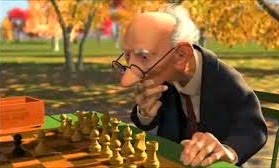HEADING FOR
A WIN AT
CHESS
Opening
Principles :
I.
Open with 1P – K4
or 1P – Q4 . This prevents the opponent from controlling
the centre . After this move advance pawns only when necessary . While
capturing make your pawns move towards centre , and avoid doubling of pawns in
a row . The pawn-structure must be strong .
II.
Next move your
knights towards centre . They are the most important pieces in initial game
Develop all your pieces , so that there is good co-ordination and as well all
pieces are free to move .
III.
Queen is an
important piece which should advance only when initial game is quite developed
. Till then it should be used only as a supporting piece . Bishops should be
advanced only when the board and their path are relatively free .
IV.
Carve-out
Sicilian Defence with two rocks standing in support to each other . Never lose
control of the centre .
Middle Game Principles :
I.
Try to think in
advance all the several moves to follow .
II.
Don’t keep any
part of your structure weak .
III.
Keep your knights
at centre .
IV.
The best exchange
is queen , rooks , knights and then bishops .
V.
Find out the weak
point in opponent’s structure and attack that wing with full force . Don’t
exchange your pieces while attack . You should exchange pieces only when that
helps to open your way for aggression .
VI.
When attacked
exchange , and also every defending move becomes necessary . But often a
counter-attack on opponent’s weak structure too is helpful .
End Game Principles :
I.
In the end-game
King becomes very powerful and should be used as a supporting and an attacking
piece .
II.
Pawns also are
very important in end-game and should be wisely advanced with supports to queen
them .
III.
Bishops also gain
in power in end-game ; hence they should be saved and preserved for this last
part of the game .
IV.
If you are ahead
in material you can exchange pieces , so that your remaining pieces can
dominate the board . But if you find that these remaining pieces won’t be able
to force a mate on your opponent , then don’t go for any exchange .
V.
If you are behind
in material , don’t exchange . But if after exchange , you find that your
opponent won’t be able to force a mate on you with remaining pieces , you can
go for exchange .
ALWAYS KEEP IN MIND :
With every move , deeply
observe >
Ø
Which path has
now opened ;
Ø
Power is relieved
over which places and pieces ;
Ø
Which path has
been closed now ; and ,
Ø
New power is
exerted over which places and pieces .

